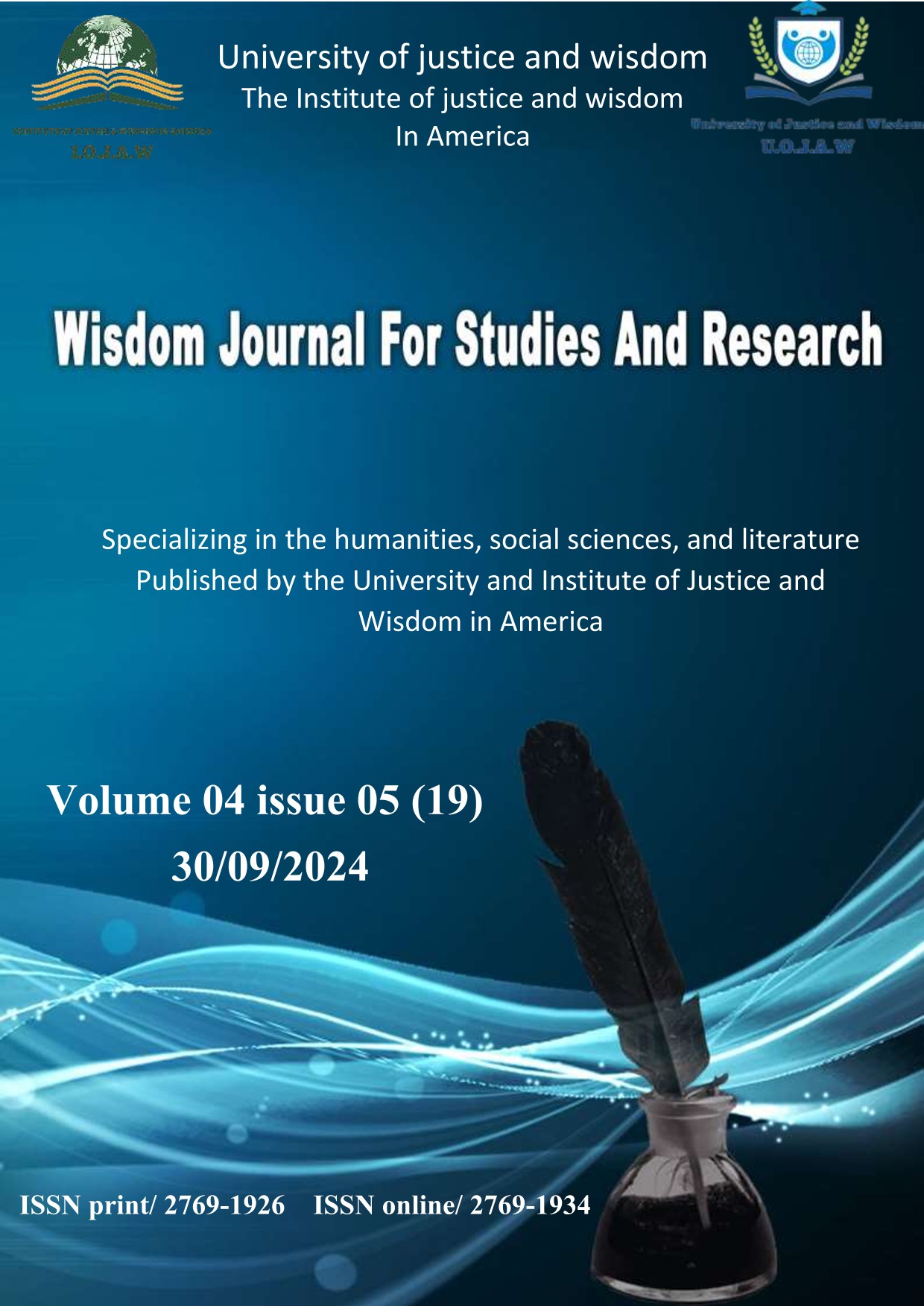“Exploring Gender and Identity in 20th-Century Literature: Feminist Perspectives in Doris Lessing's The Golden Notebook and Angela Carter's The Bloody Chamber”
DOI :
https://doi.org/10.55165/wjfsar.v4i5.420Mots-clés :
Gender, Identity, Feminism, The Golden Notebook, The Bloody ChamberRésumé
This research investigates the themes of identity and gender in twentieth-century literature, with an emphasis on the role of feminism in Doris Lessing's The Brilliant Notebook )1962) and Angela Carter's The Bloody Chamber (1979). The research aims to examine how the two writers question and dismantle conventional gender roles, featuring the impact of women's activist ideas in molding female identity inside the setting of the sociopolitical changes of the 20th 100 years. The objectives are to examine the women's perspectives introduced in every text, research the depiction of female independence, and investigate the crossing point of gender, power, and personality in the account structures. The methodology is a relative scholarly examination, using women's activist and gender theory structures to examine the texts. Essential sources, including the two books, are broken down closely by optional academic deals with women's activist scholarly analysis. Key subjects like female freedom, the disruption of man-centric designs, and the rehash of personality are investigated through character development, narrative techniques, and imagery. The outcomes show that both Lessing and Carter utilize their attempts to challenge regulating gender builds, with Lessing's The Brilliant Notebook focusing on the fracture and remaking of female identity, and Carter's The Bloody Chamber utilizing Gothic and fantasy themes to scrutinize conventional gender roles. The conversation underlines how each creator adds to women's activist artistic talk by offering complex, nuanced depictions of ladies who explore, oppose, and eventually reshape the jobs forced upon them by man-centric culture. This study concluded that Lessing and Carter, through their specific strategies, offer tough women's dissident assessments that continue to reverberate in contemporary discussions on gender and identity. Their novels feature the phenomenal ability of writing to test gender principles and advance feminist ideologies.
Keywords: Gender, Identity, Feminism, The Golden Notebook, The Bloody Chamber









